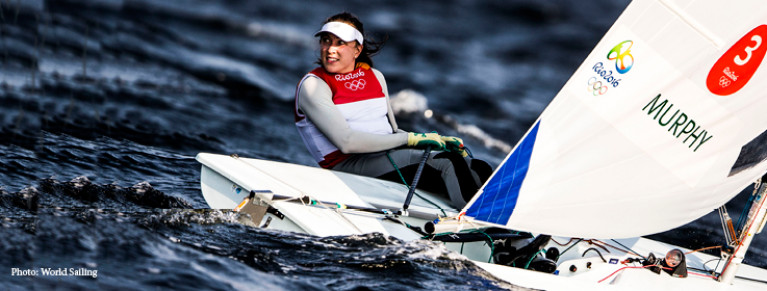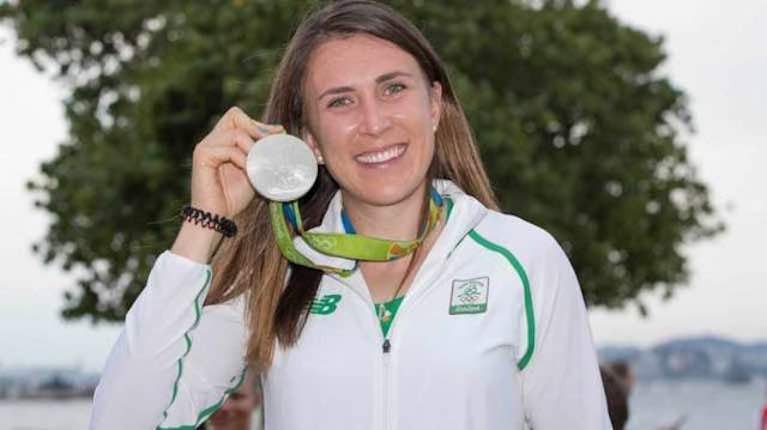Displaying items by tag: Olympic Federation of Ireland
Olympic Federation Seek Two Independent Non-Executive Directors
The Olympic Federation of Ireland (OFI) today announced that it is seeking applications for two voluntary Independent Non-Executive Directors (INED) positions to serve on its Executive Committee (Board of Directors) for the Olympic cycle to the Paris Summer Games in 2024.
This opportunity comes at a time when strong progress is being made across all areas of the OFI’s 2018 – 2024 strategy. The Independent non-Executive Director positions will provide successful candidates with the opportunity to contribute to a focused, diverse and passionate Board with a clear vision for the current Olympic Cycle.
The appointment of two independent Directors represents one of a number of Governance reforms that have been introduced recently, including term limits and minimum gender representation, which has led to a 50/50 gender-balanced Board.
Besides strong leadership ability and vision, candidates will share the passion of the Board for the development of Olympic sports in Ireland, and will demonstrate expertise and experience in at least one of following areas:
- Strong financial expertise and financial governance experience
- Proven track record of business leadership
- Public Affairs experience
Odgers Berndtson have been engaged to manage the process and the deadline for applications is midday on 30 April 2021. Interested candidates can find out more about the position and how to apply here.
Announcing the recruitment process, Sarah Keane, Olympic Federation of Ireland President said,
“This is an exciting opportunity for independent candidates with the right skill-sets to contribute to a focused, ambitious and highly motivated Board. Our vision for the future is centred on putting athletes first and inspiring the nation through their success, while achieving financial independence and ensuring the highest standards of oversight and governance.
“We believe that the addition of two independent Directors will enhance our work and will assist us in taking advantage of the exciting opportunities that exist during this period for the promotion of Olympic sports.”
Aquatic sports of sailing, canoeing and rowing are all now on the board of the Olympic Federation of Ireland after today's EGM.
The elections and the EGM took place online due to the ongoing Covid-19 pandemic, with voting delegates from the member federations placing their votes online between 11:30 and 14:00 today. The positions of President (Sarah Keane – Swimming), First Vice-President (Colm Barrington – Sailing), Second Vice-President (Robert Norwood – Snowsports) and Honorary General Secretary (Sarah O’Shea – Badminton) were uncontested.
In an historic first, the Executive Committee of the Olympic Federation of Ireland has achieved full gender balance, following the election of seven candidates at today’s EGM. Voting took place online earlier today, with nine candidates contesting seven positions. All positions were filled on a straight count, without the need for any gender quota provisions in the regulations. With the inclusion of the ex-officio Chair of the Athletes’ Commission, Shane O’Connor, the new Executive Committee will be composed of six females and six males. Four new member federations were also added to the Olympic Federation of Ireland at this evening’s meeting.
The results of the voting were announced at the EGM, the full Executive Committee listed below:
President
Sarah Keane (uncontested - nominated by Swimming)
First Vice President
Colm Barrington (uncontested - nominated by Sailing)
Second Vice President
Robert Norwood (uncontested - nominated by Snowsports)
Honorary General Secretary
Sarah O’Shea (uncontested - nominated by Badminton)
New Members of the Executive Committee
Listed in alphabetical order by surname
Moira Aston (nominated by Canoeing)
Michelle Carpenter (nominated by Rowing)
Georgina Drumm (nominated by Athletics)
Ciaran Gallagher (nominated by Gymnastics)
Linda Morgan (nominated by Boxing)
PJ Nolan (nominated by Cycling)
Lochlann Walsh (nominated by Triathlon)
The following member federations were added to the Olympic Federation of Ireland by show of hands at the EGM and will become full members due to their sport being on the programme during the next quadrennium.
Irish Luge Federation
DanceSport Federation of Ireland
Irish Surfing
In 2018 Kickboxing gained provisional recognition by the IOC, and is hoping to become a programme sport for the Olympic Games in LA in 2028. This evening they were approved as Associate Members of the Olympic Federation of Ireland.
Kickboxing Ireland
President of the Olympic Federation of Ireland, Sarah Keane, who ran uncontested this year, will remain in the position for one more term.
“Tonight we are delighted to welcome three new members to our Executive Committee, and I would like to thank the outgoing members – Billy Kennedy, Robert Johnson, Darren O’Neill and Denis Toomey, who have contributed greatly to the organisation over the past three years. We are in the middle of our 2018 – 2028 strategy, and whilst a significant amount has been done and achieved so far, there is more to do, and we are very ambitious for Team Ireland and for Irish Olympic sport.
“I would also like to welcome our four new member federations, which represent some of the exciting and diverse sports that are on the Olympic agenda. We look forward to working with them and with all of our 42 member federations over the coming years.”
Olympic Federation of Ireland Welcomes €36m Sport Budget Announcement
The Olympic Federation of Ireland today welcomed the Government’s budget announcement that Sport Ireland will receive an additional €36m in funding next year.
The OFI Board has welcomed the long-term planning that is now being applied to sport through the National Sports Policy, and investments like today’s budget announcement are strongly welcomed in allowing for the delivery of those policy commitments and affording some protection to the sector at this critical time.
Speaking today, Peter Sherrard, CEO of the Olympic Federation of Ireland said, “I thank the Government, Minister Catherine Martin and Minister Jack Chambers for today’s budget announcement. We understand that this additional contribution to Sport Ireland will provide much-needed support for the sector and will allow continued planning for high-performance athletes ahead of next year’s Tokyo Olympic Games and the Paris 2024 cycle. This is welcome news for our athlete community who deserve our support and are working tirelessly to represent Ireland on the global stage.”
Budget 2020 To Deliver Tokyo Olympic Funds & National Sports Policy
The Olympic Federation of Ireland today welcomed the announcement made by Minister Shane Ross and Minister of State Brendan Griffin that Budget 2020 will deliver on the progressively increased funding for Irish sport set out in the 2018-2027 National Sports Policy.
Special funding earmarked to support National Governing Bodies, such as Irish Sailing, Rowing Ireland and the Irish Canoe Union, in preparation for the 2020 Olympic Games is also very welcome at this juncture, less than ten months out.
Speaking today, Peter Sherrard, CEO of the Olympic Federation of Ireland said,
“We thank the Government for continuing to honour its funding commitment to sport under Budget 2020. Sport plays a vital role in society, with major health, social and economic benefits right across the country. Our international athletes sacrifice so much to represent us on the world stage and inspire so many young people to get involved. They deserve our support and we thank the Government for committing funding to their programmes under this Budget.
“While details are still to be announced by Sport Ireland in relation to the distribution of the funding, today’s Budget announcement provides the means necessary to continue delivering on the 2018-2027 National Sports Policy and that is very positive.”






























































